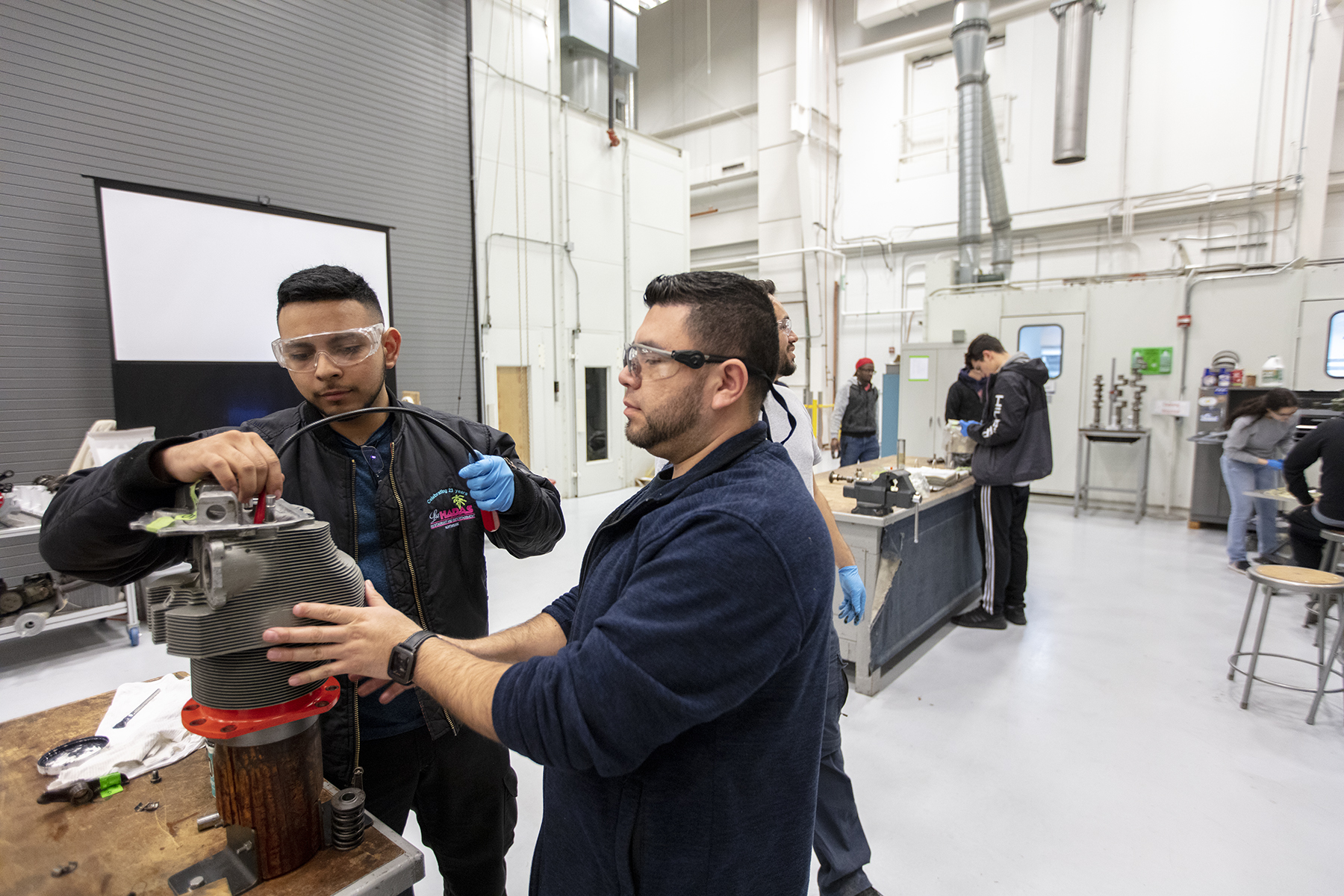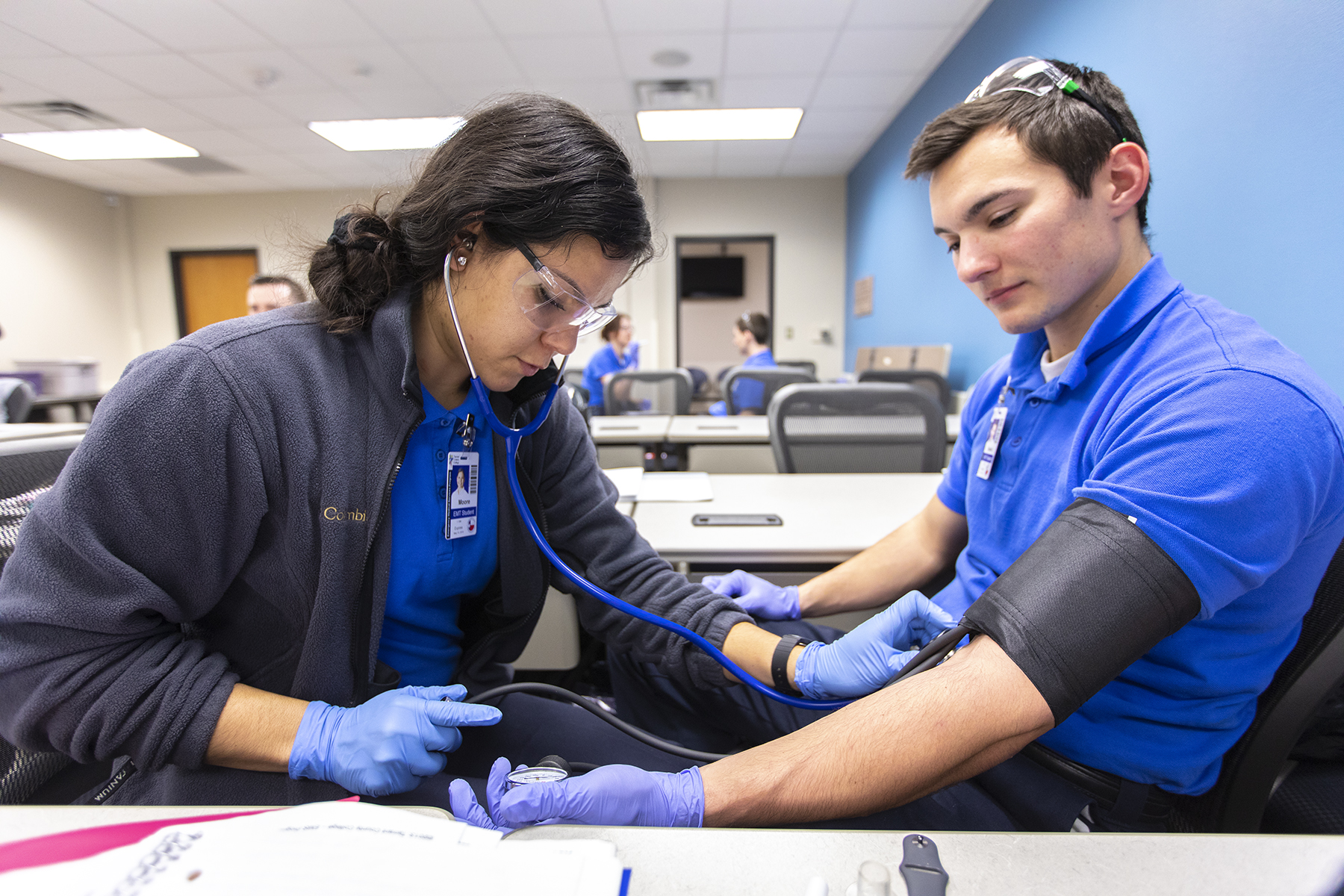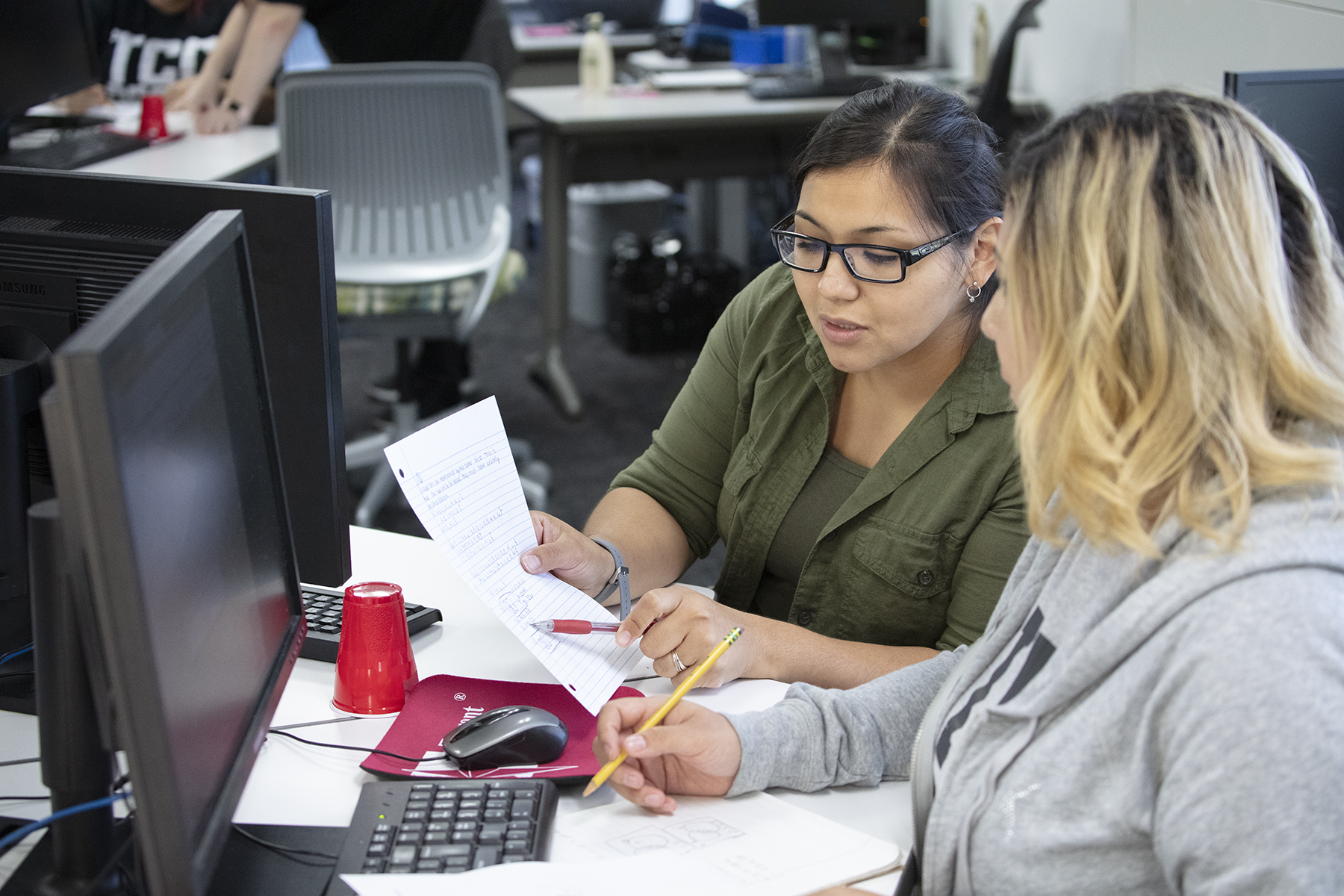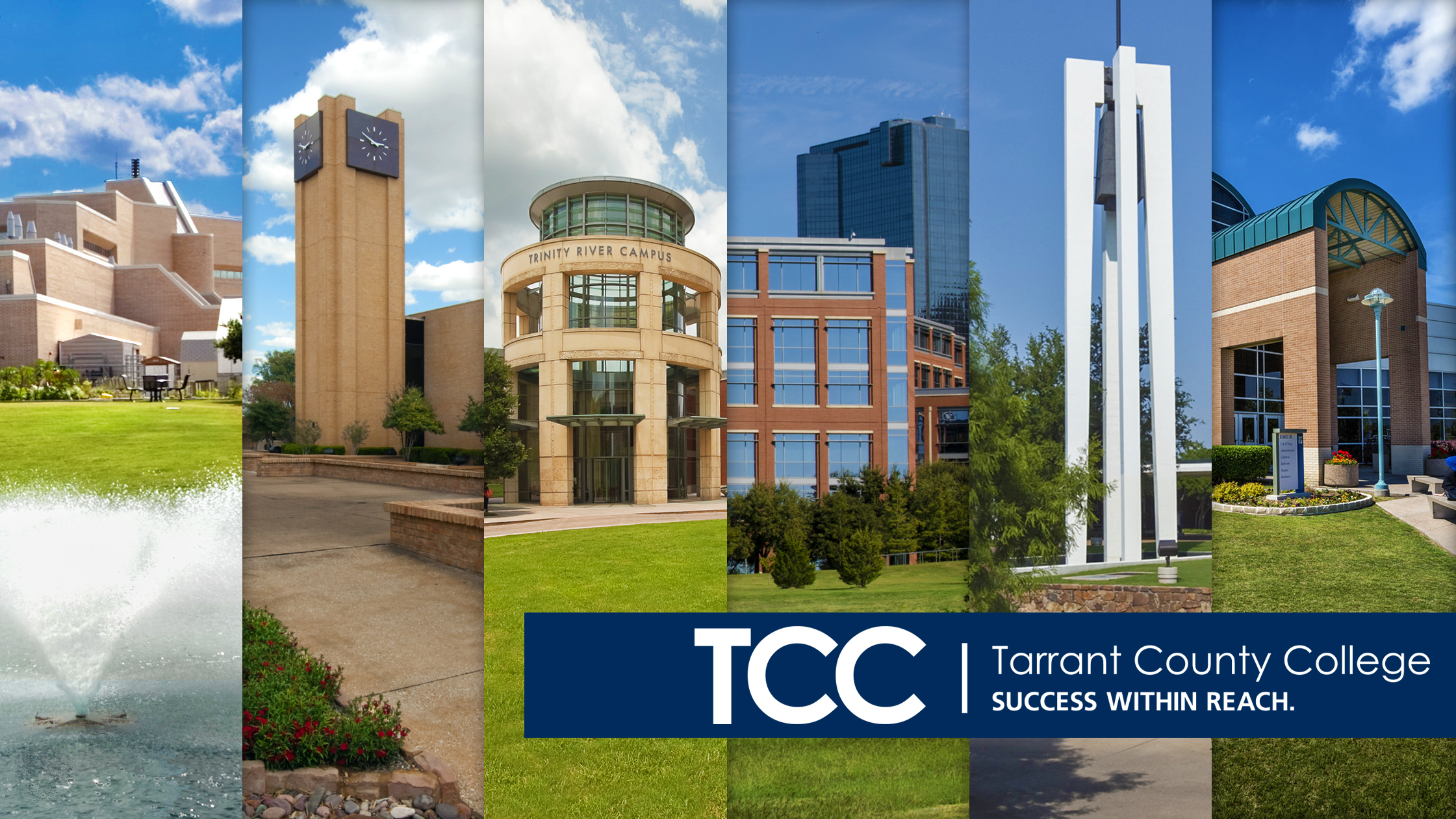Written by Anthony Walker, EdD with contributions from Demesia Razo, Ph.D.
Tarrant County College District (TCCD) – a two-year, multi-campus institution located in Tarrant County, Texas – embraces its mission and responsibility. The only public, degree granting community college in Tarrant County, TCCD is committed to providing access to quality education at an affordable price. TCCD is more than a place where students come to earn a credential, upgrade their skills development, and/or continue learning through one of TCCD’s many Continuing Education programs, it is a place where students come to translate imagined possibilities into careers; develop lifelong friends; and engage in meaningful learning experiences tailored to meet their needs.
TCCD is a place where a commitment to, and investment in, students is the noticeable norm. Our faculty and staff have a wealth of experiences, knowledge, passion, and purpose, which they share with students daily. While there are numerous activities and projects that contribute to the many success stories at TCCD, it is the continuous effort to strike a balance between a systems-thinking, One College model and the unique cultures and climates of each of our six campuses. Our intentional and collaborative approach to continuous improvement is driven by the three Goals (One College; Student Ready; Serve the Community) and eight Principles (Learning Commons; Integrated Instructional Learning Environments; Integrated Student Success Model; Student Experience; High Schools; Scheduling and Facility Utilization; Campus Character and Quality; Workspace Environments) that provide the framework for our integrated, strategic work. This allows TCCD to evolve and maintain focus on being Student Ready. At the forefront of these efforts is the opportunity to build on a foundation of success and lean into lessons learned to leverage the opportunity and resources provided by the recently, and first-time awarded, Title V – Developing Hispanic Serving Institutions grant.

We received our first Title V HSI grant in October 2020. The award, appropriately named College, Career, and Life Readiness (CCLR) provides a dual reflection of the present and who we aspire to be in the future. For example, presently, we are an institution with a diverse student population that includes 36% of students identifying as Hispanic/Latino in Fall 2021 (TCCD Institutional Research: Data at a Glance). Fall 2021 enrollment data highlight a 13% increase in TCCD’s student population who identify as Hispanic/Latino over the past 10 years (Fall 2011 = 23%). Further, the percentage of students who identify as White has decreased by 18% (Fall 2011 = 49%; Fall 2021 = 31%), while the percentage of students who identify as Black/African American has remained constant during this same period, decreasing by 1% from Fall 2011 to Fall 2021. This data provides a snapshot of who we are in terms of enrollment. What our Title V project provides is an opportunity to augment our impact through intentional and strategic activities with Hispanic/Latino student success in mind.
The CCLR project allows us to complement the strategic work of the College, disrupt the status quo, and become a nationally recognized leader in student learning and success that is also a Hispanic Serving and Graduating institution. What follows is a brief discussion about the core tenets of the CCLR project that will guide our work and the opportunity to transform what we do to support and serve students and the community at TCCD.

Our Title V project has four aspirational goals that will guide our work over the next four years. These goals reflect the intentionality of the project design and its direct connections to TCCDs strategic work. The four objectives are:
• Increase academic preparation for post-secondary education of FTIC Hispanic and/or low-income students participating in Title V grant activities by 8 percentage points over the 2019 Fall baseline.
• At least 75% of students participating in Title V activities will receive career advising through participation in at least two career advising sessions per semester.
• Increase four-year graduation rate of Hispanic and other low-income FTIC students by 7 percentage points from the Fall 2015 cohort.
• At least 50% of faculty/staff will complete at least one course/professional development activity related to cultural competency by Summer 2025.
These four objectives are linked together by three pillars of student readiness. The three pillars are College Readiness, Career Readiness, and Life Readiness. While important as stand-alone attributes of student development, when woven together, they create an interconnected framework that will help guide TCCDs ongoing strategic and transformational work to be a Student Ready college.

The first pillar, College Readiness, ties learning with student-conscious practice from the outset of a student’s transition to TCCD. Although the metrics and definitions of college readiness are congruent with traditional norms (e.g., placement test scores), we recognize that college readiness is more complex than a single set of test scores. And, while a success indicator is the increased percentage of students meeting the cut score linked with being college ready, our Title V project integrates a collective approach to developing students’ college readiness. For example, we recognize the importance of, and connections between, a sense of belonging and student success. As Strayhorn (2018) noted, sense of belonging is a salient factor in students’ learning and success, particularly for students of color.
How we plan to connect dots between sense of belonging and increased college readiness among our students, specifically Hispanic/Latino students, includes an institutionalized weaving of cultural relevancy and responsiveness into the student welcome experience, communications, advising, and programming. One point of emphasis is the evolution of advising at TCCD. We are in the process of shifting from a transactional academic advising approach to a teaching and learning, relational, career advising model that starts with the end in mind to support students’ decision-making and success. By fusing financial knowledge building, career advising, and an intentionally designed welcoming experience, TCCD seeks to transform student’s first year experience in ways that increase the college readiness of students who identify as Hispanic/Latino and/or are from a low socioeconomic status by 8 percentage points by 2025.
The second pillar, Career Readiness, highlights our investment in continuous and strategic alignment of institutional priorities. For example, TCCD joined the American Association of Community Colleges (AACC) Pathways 2.0 cohort and the Texas Success Center Pathways cohort in 2017. An important part of the work and learning over the past five years is the increased focus on connecting the student learning experience with their career and educational goals from the outset of their journey as a TCCD student. This learning translates into practice through key activities such as career advising, business leaders conferences, and structured collaboration between advising teams and faculty.
Career advising is a core tenet for our CCLR project. The transition from a traditional transactional advising model to a relational career advising framework is an important part of the work to transform how we advise students and how students navigate their educational experiences at TCCD. For example, institutional data highlight that, on average, students earn 24 excess credit hours (84) while completing their associate degree at TCCD. The intentional connection between a student’s career goals and academic program of study will help students and advisors identify the appropriate pathway and connect students with the necessary resources to keep them on the right path to increase retention (Gordon, 2006; Tinto, 2004) and timely completion (Mahoney, 2009). A specific activity of the grant that aims to help students understand career pathways is the Business Leaders Conferences. These conferences are conduits between student’s classroom experience, campus engagement, and goals. They provide students with access to real, relevant knowledge directly from employers. This, along with the collaborative discussions and partnerships between advising and faculty, will help students develop the content knowledge, confidence, and experiences resulting in career readiness. To foster this alignment and experience, TCCD has set a goal of having a minimum of 75% of FTIC students who identify as Hispanic/Latino engage in at least two career advising sessions per semester.
The third and final pillar, Life Readiness, expands student learning beyond educational success and earning a degree/credential. At TCCD, life readiness is about connecting the tangible and intangible attributes of the college experience. For us, life readiness includes having knowledge and skills such as leadership, prioritizing time and tasks, identity awareness, and more. Developing life readiness includes extra and co-curricular experiences TCCD has to offer – it is the connecting of dots between college and career readiness to develop the skills needed to be productive, engaged, ethical leaders and citizens. Over the course of the five-year project, TCCD will leverage the resources of Title V to support students’ life readiness through activities such as leadership development, first and second year experience programs, and campus engagement focused on career and life goals. Through these activities, TCCD will employ equity-minded, student-conscious leadership through a lens of Hispanic/Latino student success to provide a learning experience that weaves together degree/certificate completion with students’ preparedness to lead and engage in the 21st century.
While each pillar of readiness includes activities designed to enhance the student learning experience and increase success, specifically for Hispanic/Latino students, the axis of success is the fourth objective of our project: professional development. When imagining the project, TCCD leadership recognized the importance of, and need for, targeted professional learning and development for faculty and staff. Under the assumption that a model of practice is only as good as the practitioners who lead and implement it, TCCD prioritized professional development as a point of emphasis for our Title V project. More specifically, we will invest resources from the project to engage faculty and staff in professional learning activities focused on cultural relevancy and responsiveness, sense of belonging, and career advising. The goal is to have 50% or more of all faculty and staff engage in at least one professional learning activity during the five-year project. By investing in people, we will be better prepared and equipped to provide students with a 21st century learning experience that reflects the institutional and community culture and prepares them to be college, career, and life ready.

Title V HSI projects emphasize strengthening systems. Our College, Career, and Life Readiness project combines proven and promising practices, data, and experiential learning, to strengthen systems and processes which in turn cultivate a student ready learning culture that empowers, engages, and educates. A student ready college – one that emphasizes impact rather than intentions - and equity, not equality - places the highest priority on cultivating cultures of leadership and practice that are equitable, culturally and personally relevant, and focused on the success of all students. Title V HSI grants prioritize two historically and systemically marginalized target student populations (namely, Hispanic/Latino and low socioeconomic status). They emphasize a systems approach to improve institutional processes, policy, and practice. Using a systems lens, Title V projects help institutions identify, analyze, and address gaps that will result in success for all students and the institution.
We are excited to imagine the possibilities and ready to translate opportunity into reality as we continue along the path of being a proud Hispanic Serving and Graduating Institution that is truly the community’s college.
References
Gordon, V. N. (2006). Career advising: An academic advisor’s guide. San Francisco, CA: Jossey-Bass.
Mahoney, E. (2009). Career advising competencies. In K. F. Hughey, D. Burton Nelson, J. K. Damminger, B. McCalla-Wriggins, & Associates (Eds.), The handbook of career advising (pp. 48–67). San Francisco, CA: Jossey-Bass.
Strayhorn, T. (2018). College students’ sense of belonging: A key to educational success for all student (2nd ed.). Routledge.
TCCD Institutional Research (2022). Fall 2021 Data at a Glance.
Tinto, V. (2004). Student retention and graduation: Facing the truth, living with the consequences. Pell Institute for the Study of Opportunity in Higher Education
Author bio:
Anthony Walker, Ed.D., received his Bachelor of Arts degree in Elementary Education with a minor in Special Education from Northern Kentucky University; his Master of Education in Educational Counseling from Texas Christian University; and his Doctor of Education in Educational Leadership, with a cognate in Higher Education Administration from Stephen F. Austin State University. He currently serves as the Assistant Director of Academic Initiatives at Tarrant County College. Anthony is an evolving scholar-practitioner who is dedicated to integrating principles of social justice, equity-mindedness, and inclusiveness in action into practice and leadership.
Place your job ad in our classified page on the HO print & digital Edition